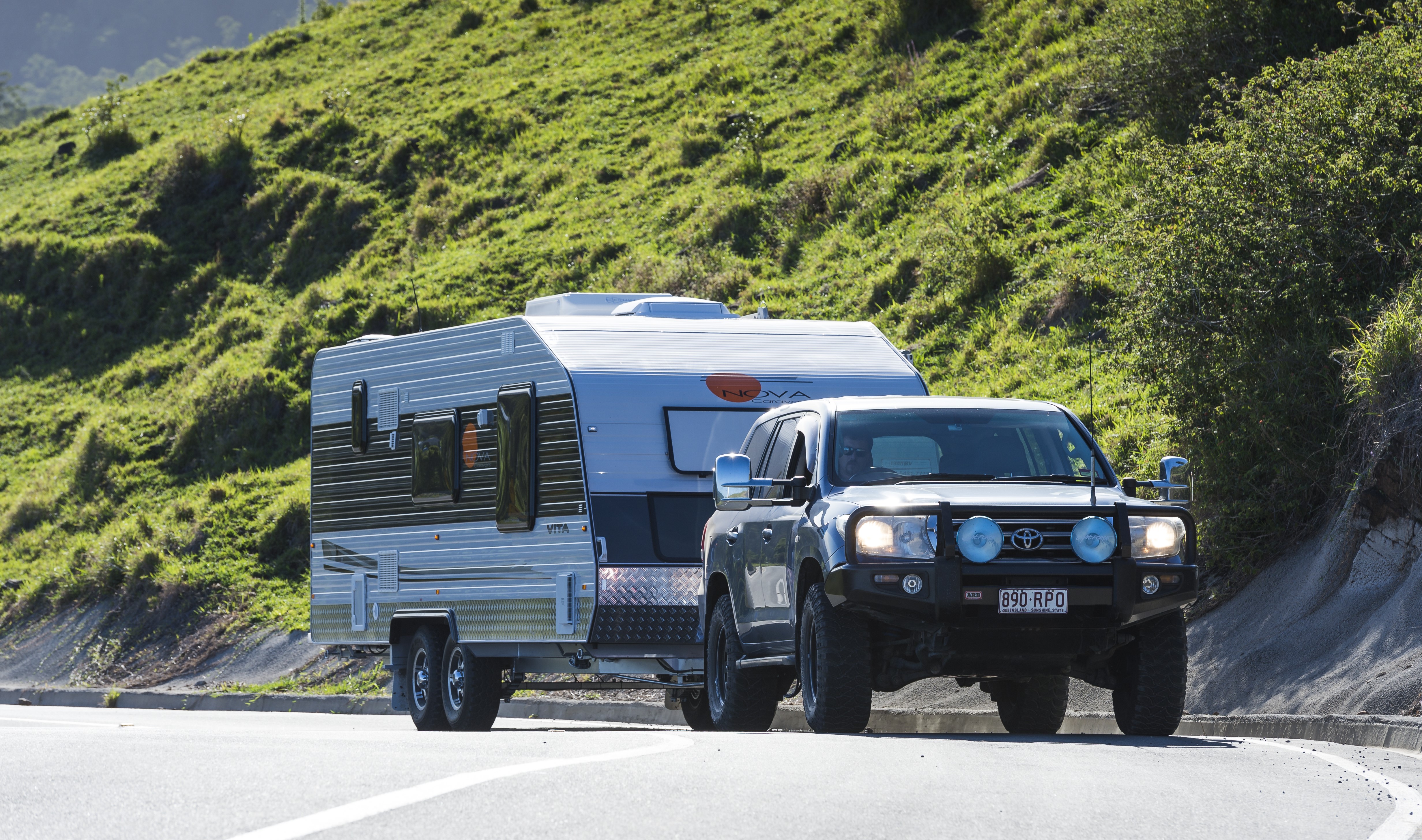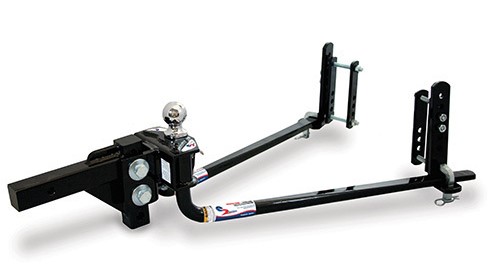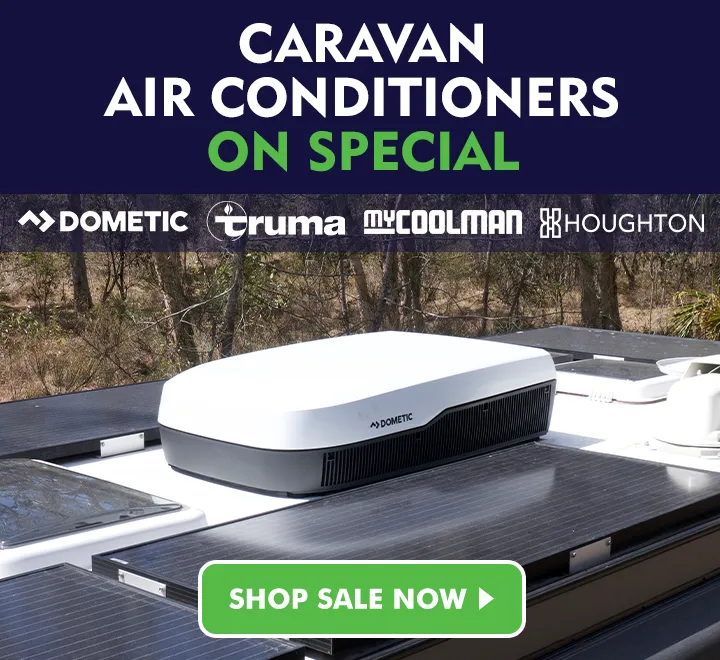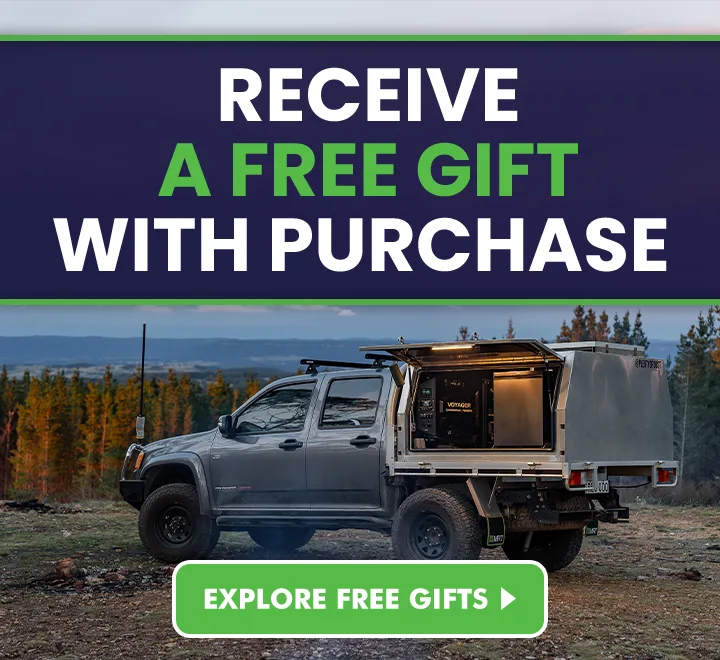Towing a caravan might seem daunting at first, but with the right knowledge and preparation, it can be a safe and enjoyable experience. Whether you're heading off on your first big road trip or brushing up on the basics, this step-by-step guide will walk you through everything you need to know. From choosing the right towing setup and understanding weight limits to hitching up safely and driving with confidence, we’ve covered it all to help you hit the road with ease.
Identify Road Conditions You Will Be Travelling On
Before you set off, it’s important to identify the types of roads you'll be travelling on—because sealed, well-maintained highways aren’t always guaranteed. In fact, over 60% of Australia is only accessible by vehicles with an off-road setup, so knowing your route is key to choosing the right towing gear and driving strategy. Take time to research how weather conditions might impact the roads, especially in remote or regional areas where rain can quickly turn dirt roads into slippery tracks. Also consider the kind of traffic you’ll encounter—out west, road trains and wide loads are common, and you may find yourself needing to pull off the road more frequently to give way safely. Planning ahead means fewer surprises and a smoother towing experience.
Know Your Equipment Capabilities
Knowing your equipment’s capabilities is one of the most important steps in safe and legal towing. Start by checking the maximum tow rating of your vehicle, which you’ll find in the owner’s manual. You also need to make sure your tow ball is rated to match—this rating is usually stamped on the tow ball frame. Next, find out the Gross Trailer Mass (GTM), which is the weight of your caravan, boat or trailer when fully loaded and hitched to your vehicle. Don’t forget to include the weight of luggage, fuel, and passengers. A handy way to check this at home is by using a Caravan Weight Scale. You’ll also need to know your tow ball weight—the amount of downward force your trailer places on the tow ball. As a rule of thumb, your tow ball weight should be about 10% of your GTM and must not exceed the rated capacity of your tow ball. This is key for safe towing, as incorrect tow ball weight can lead to poor control and increased risk of trailer sway. The Aussie Traveller Towball Weight Scale is a great tool for accurately measuring this.
Install Electric Brakes and a Brake Control Unit
If your caravan, boat or trailer GTM exceeds 750kg, legally you must have brakes fitted to at least one wheel. If your caravan/trailer exceeds 2000kg, they are legally required to be fitted on ALL wheels and can be controlled by the drive in the cabin of the tow vehicle. It is important to check your states LAW's on towing as they can differ in the powering of your braking systems.
Electric brakes are preferable to mechanical as you can apply electric brakes independently if you need to. This is very important if your caravan is swaying whilst driving at speed. Click here for our range of electric brake controllers.
Mechanical activated brakes on your caravan boat or trailer are better than no brakes at all, but independent electric activated brakes are better for the control of your vehicle and the safety of your occupants.
Read our full caravan brake controller buyer's guide here!
Use a Weight Distribution Hitch System (WDH)
A weight distribution hitch system installed at your vehicles hitch point can raise your rear end and help level out your whole set up for greater control and performance by spreading the load from your hitch point to your whole chassis (both vehicle and caravan).
A sagging rear end will reduce your brake and steering efficiency on the front end as it becomes lighter. A quick and easy way to measure how level your ride is take a look at the OnTarget Towing Tool.
A great tip when looking for a weight distribution system is to have one that includes sway control to make towing even safer. The Anderson Weight Distribution range offers a innovative built in sway control and anti-bounce 'True Motion- Dampening' System. It also easy to install and makes hitching a breeze.
There are also weight distribution hitches on the market that can remain in place when reversing which will save you time when setting up. Check out the range of Fastway E2 Weight Distribution Hitches to suit all sizes and applications.
Learn more about Caravan Weight Distribution Hitches with our full guide here.
Know the Difference Between a Weight Distribution Hitch (WDH) and Airbag Suspension
A Weight Distribution Hitch (WDH) spreads your tow ball weight evenly across your chassis (both vehicle and caravan) whilst raising your vehicle rear end and correctly positioning your rear axle. This will improve braking and steering performance by providing a constant downward force over the front axle of your vehicle.
Airbag Suspension will ONLY level up or raise your rear end axle to the correct position. This will make your setup look level but it will NOT distribute your tow ball weight evenly or correctly, therefore it will NOT improve your braking and steering efficiency as effectively as a Weight Distribution Hitch as there will NOT be a constant downward force over the front axle.
Inspect and Correctly Inflate Your Tyres
Inspect all tyres including your spare and check that the load and speed rating are correct for your towing needs. (Information can be found on tyres, vehicle and caravan metal placards)
Make sure your tyres are correctly inflated to manufactures specifications. There are recommended tyre pressures for normal operating and max load conditions. To ensure you can inflat your tyres if required, carry an air compressor with you on your travels.
Make sure your wheels nuts are tightened to the manufacturer’s correct torque setting. There is a procedure for tightening up your wheel nuts to allow the wheel to be secured evenly. (up, down, left, right etc but check your manufactures handbook for details)
Invest In Good Quality Products
Towing a caravan can be a great way to travel and explore new places. However, it's important to make sure that your caravan is properly towed and secured to your vehicle. This is where essential high quality towing products come in.
An electric trailer jack can make it much easier to raise and lower your caravan, especially if it's heavy or fully loaded. The Black Jack Electric Trailer Jack Bundle with Jockey Block is a great option, as it comes with everything you need, including a jockey block to help stabilise your caravan while it's being raised or lowered.
Towing mirrors are great for that extended view which can eliminate blind spots and give you a better view of your whole vehicle setup. If you don’t want permanent extended mirrors on your car there are lots of different ‘easy fit’ designs that allow you to fit your mirrors temporarily with no tools required.
.jpg)
Check your Tow Ball/ Hitch and Safety Chain Setup
Before you hit the road, always check your tow ball, hitch, and safety chain setup. Your tow ball coupling is adjustable, so it’s important to ensure the ball and coupling are a snug fit—this helps prevent the coupling from slipping off during travel. Be careful not to over-tighten though, as this can make it difficult to unhitch later. If the coupling isn’t properly adjusted, you might feel a jolt or jarring sensation through your vehicle when taking off—this is a sign the ball has too much movement inside the coupling.
Also, double-check that your safety chains are correctly attached, in good condition, and rated appropriately, along with secure ‘D’ shackles. Don’t overlook your electrical connection either—this powers your trailer's electric brakes and lights, which are essential for safe towing. If you’re dealing with different plug types, there’s an adapter available for just about every configuration to make sure everything stays connected and working properly.
Get a Professional Caravan Check-Up
Just like you’d get a roadworthy check for your car, it’s a smart move to book your caravan into the nearest caravan repair centre for a complete check-over before a big trip. A professional service can identify any issues you might miss, giving you peace of mind that everything is in top working order. The number one cause of caravan-related accidents is incorrect vehicle setup—something that can lead to serious consequences, even for the most experienced caravanners. A proper inspection helps ensure your setup is safe, compliant, and ready for the road ahead.
Go get INSURANCE!
When your home away from home is in need of repair, a good insurance policy is worth its weight in gold…..and it’s a lot cheaper compared to normal car insurance.
Don't forget to read the fine print! Full comprehensive insurance does not necessarily mean full comprehensive insurance! There is a difference between full comprehensive ‘accident’ cover and full comprehensive ‘accident and manufacturing fault’ cover – make sure you have both or at the very least ‘water damage cover’, you would be surprised at the amount of caravans that leak from new due to manufacturing faults which can lead to internal wood rot and cost thousands to repair.
Towing a caravan safely comes down to the right preparation, understanding your vehicle’s capabilities, and making sure your setup meets legal requirements. If you’ve made it to the end of this guide and still feel unsure about your weight limits or towing setup, don’t worry—KNOW MY TOW offers a helpful calculator to work out your precise towing weights. View the calculator here. And if you’re ready to hit the road, we’ve got you covered with a full range of quality towing gear and accessories to suit every setup. Explore our towing range here.
DISCLAIMER* Please note, this advice is general in nature and we strongly recommend consulting the product manual and where relevant, a professional installer.


(1).jpeg)

.jpeg.jpg)




